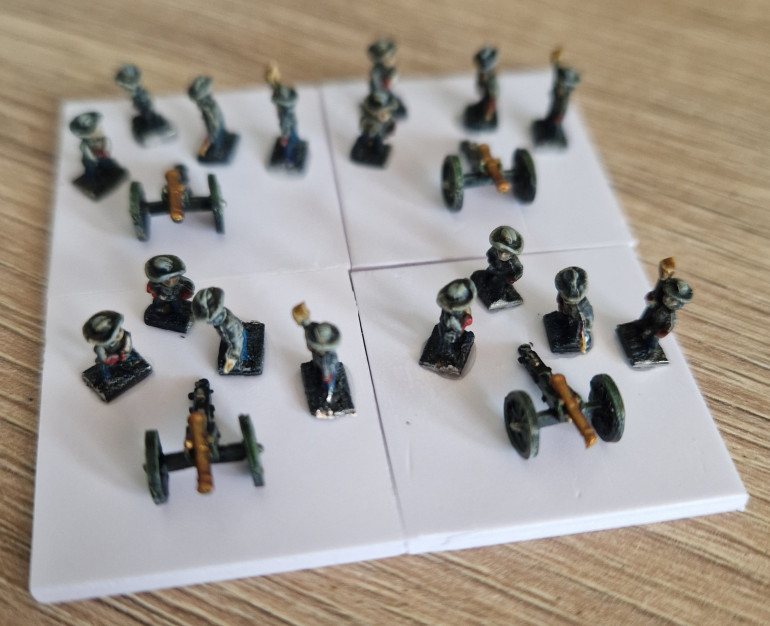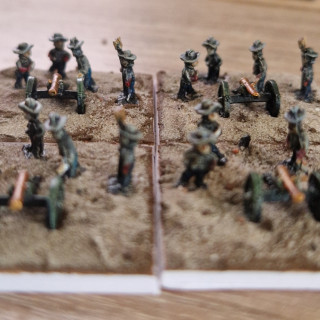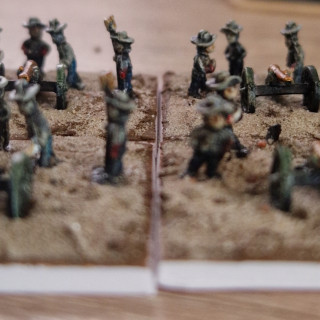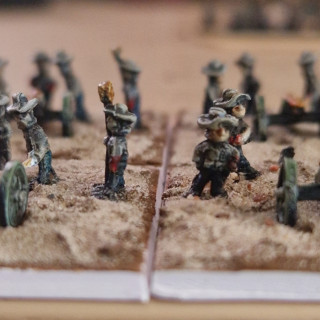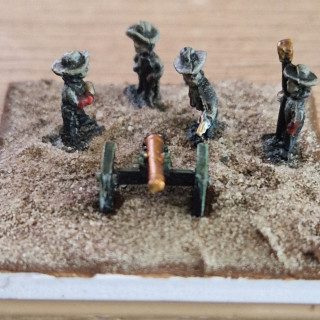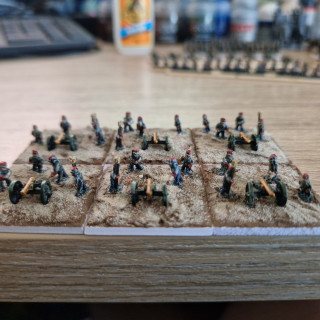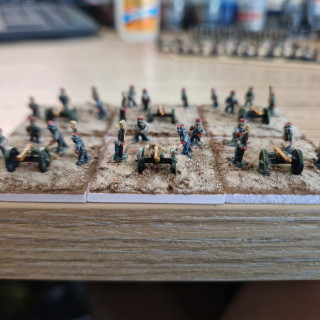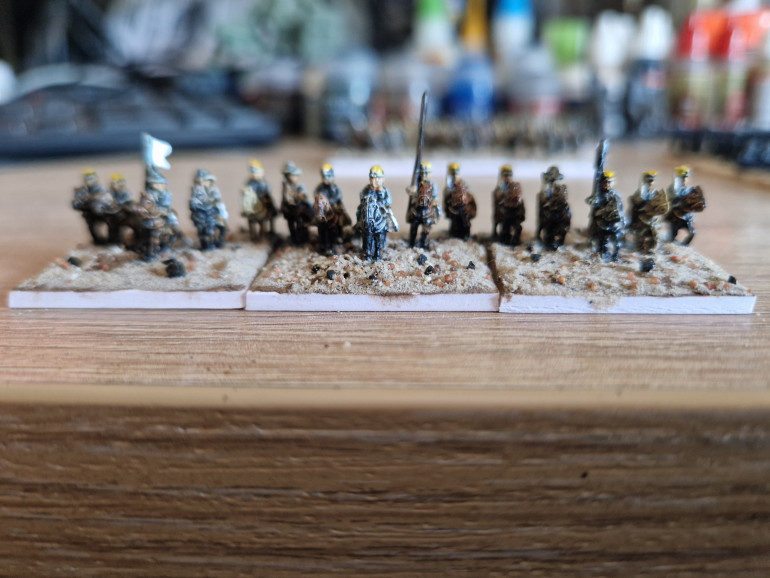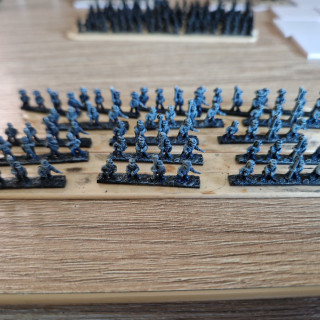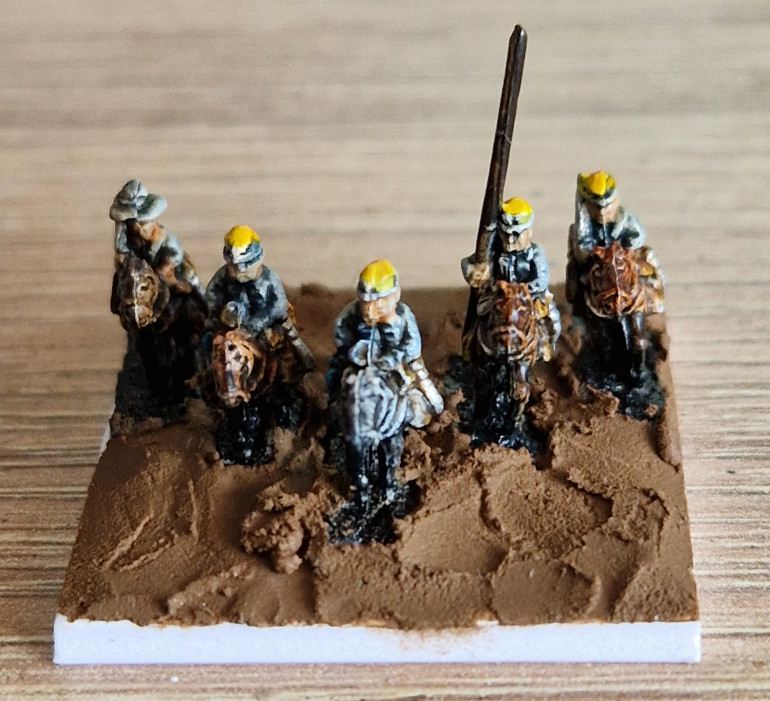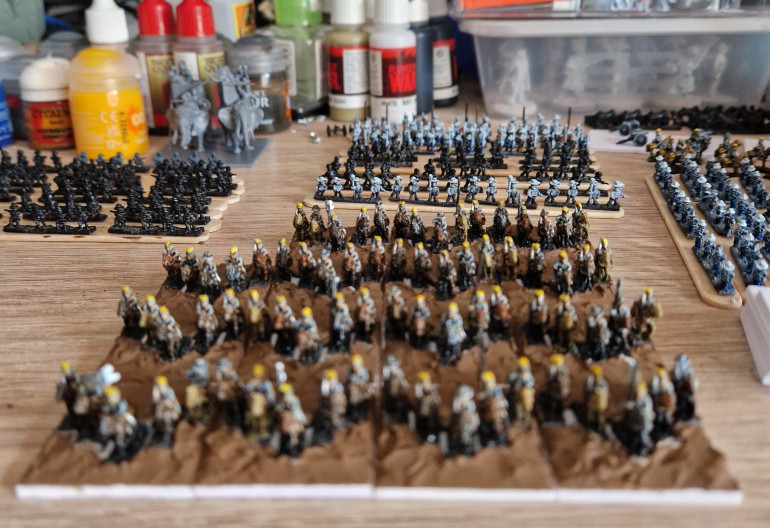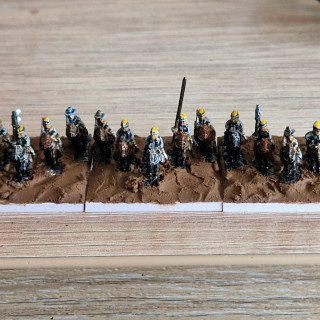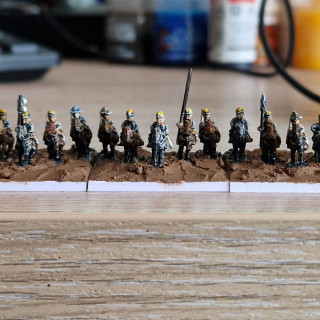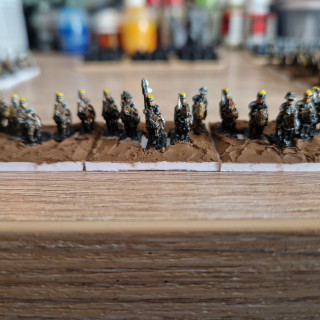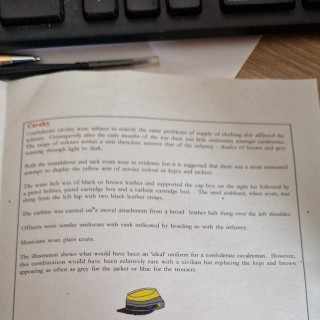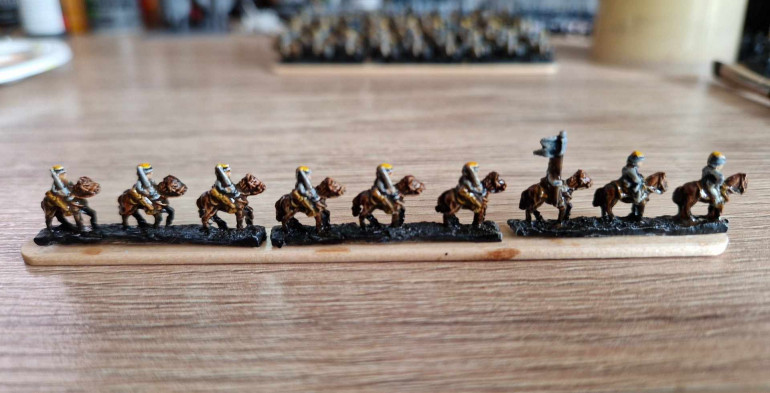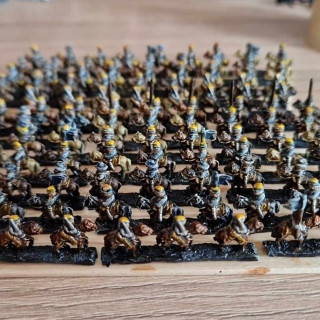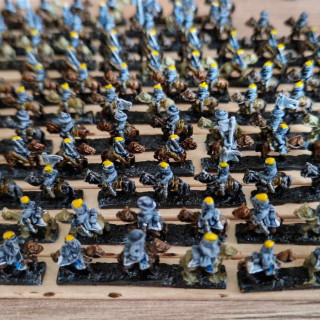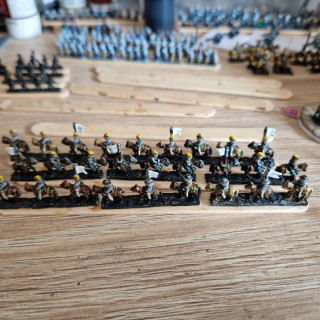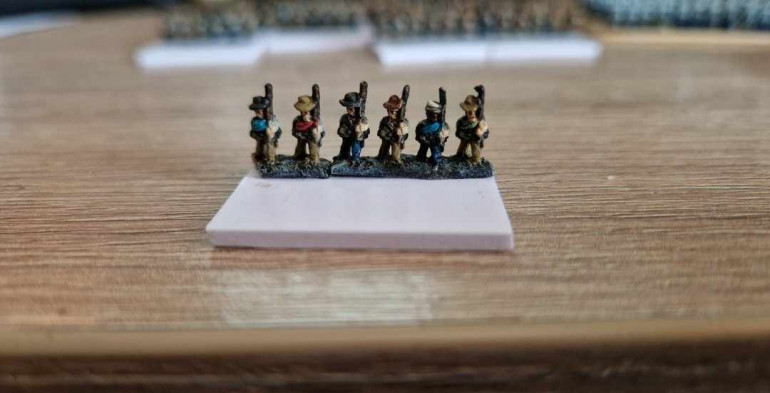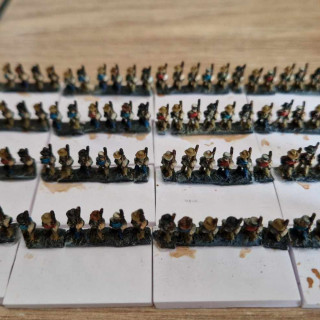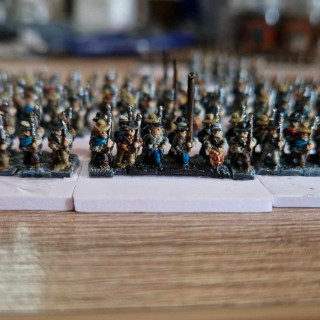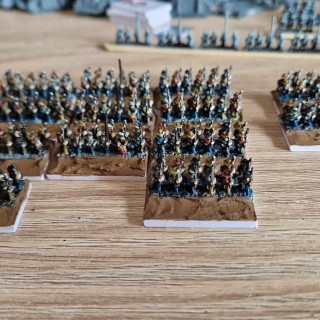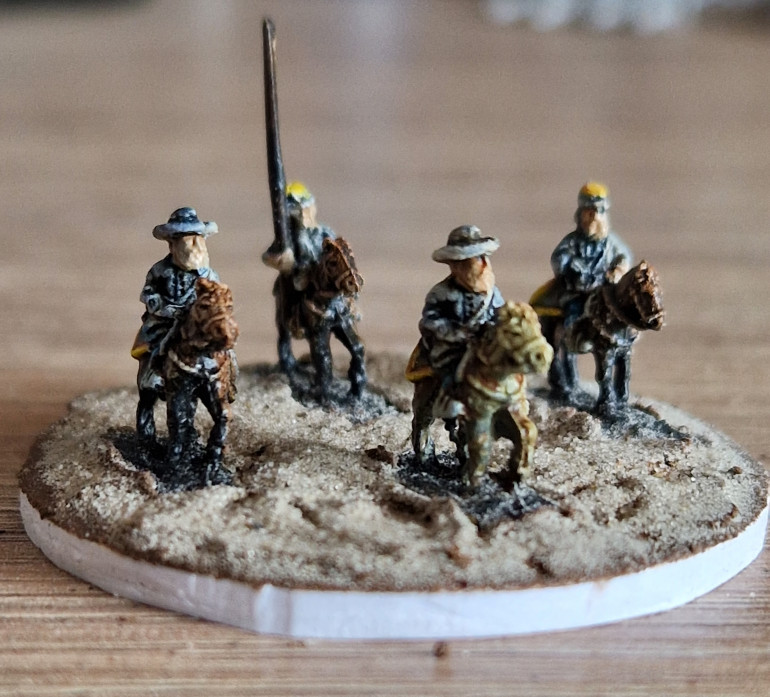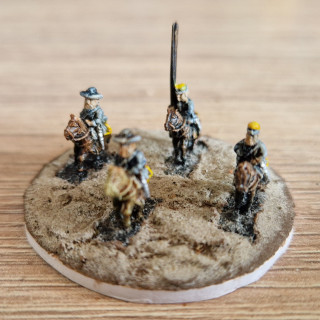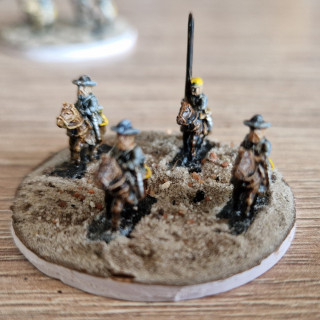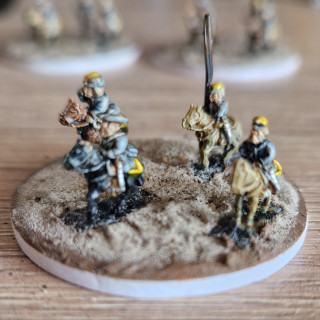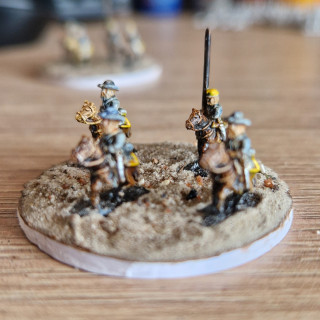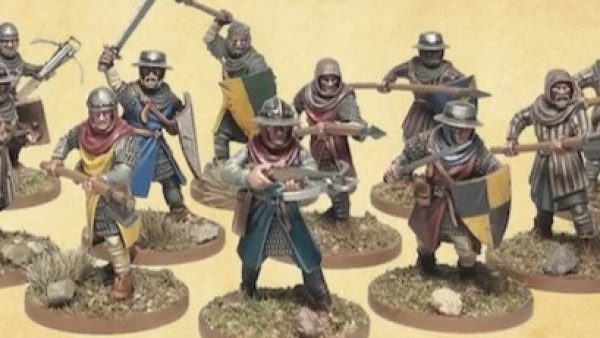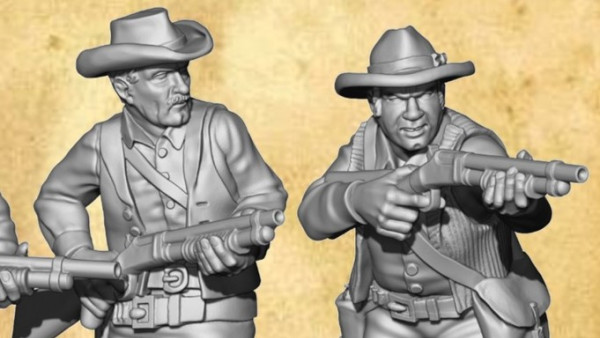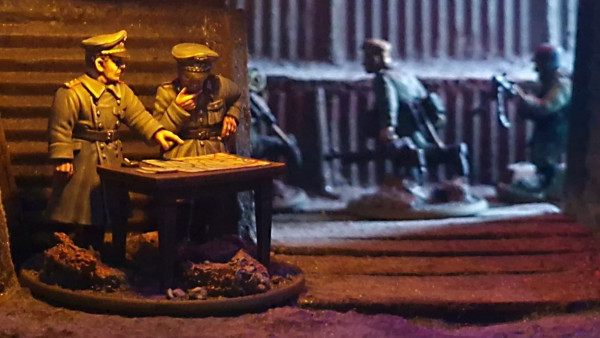
ALL DONE!! – Building a 6mm Baccus ACW Confederate army for a new game system to be announced
Recommendations: 265
About the Project
working @commodore Rob and @Brucelea to build up armies to fight out a ACW battle, North verse South in 6mm using a new ruleset based on Mortem et Glorium
Related Game: Mortem Et Gloriam
Related Company: Baccus 6mm
Related Genre: Historical
This Project is Active
The American Civil War
Fought from 1861 to 1865, was a defining conflict in United States history. It was a brutal and bloody war, primarily caused by deep-seated issues related to slavery, states’ rights, and the balance of power between the federal government and the states. The war fundamentally reshaped the nation and its course, leading to the abolition of slavery and setting the stage for the Reconstruction era.
Causes of the War
- Slavery: The primary cause of the war was the disagreement over slavery, especially its expansion into newly acquired territories. The Southern states relied heavily on enslaved labor for their agricultural economy, particularly in the cotton industry, while the Northern states had largely abolished slavery and were becoming more industrialized.
- States’ Rights: Southern states championed the idea that states had the right to govern themselves and make their own decisions, including the right to secede from the Union. They argued that the federal government was overreaching, particularly concerning issues like slavery.
- Economic Differences: The North and South had vastly different economies. The industrialized North favored tariffs and infrastructure improvements that would benefit manufacturing and trade, while the agrarian South opposed these policies, fearing they would harm the export of cotton.
- Political Conflicts: The political landscape was deeply divided. The formation of the Republican Party, which opposed the expansion of slavery, and the election of Abraham Lincoln as president in 1860, were seen by many Southerners as direct threats to their way of life. Lincoln’s election led to the secession of Southern states.
Key Events
- Secession of Southern States: Following Lincoln’s election, starting with South Carolina in December 1860, eleven Southern states seceded from the Union and formed the Confederate States of America, with Jefferson Davis as their president.
- Fort Sumter: The war officially began on April 12, 1861, when Confederate forces fired on Fort Sumter in Charleston, South Carolina, prompting Lincoln to call for volunteers to suppress the rebellion.
- Major Battles:
- First Battle of Bull Run (1861): The first major battle, which ended in a Confederate victory and shattered the North’s hopes for a short war.
- Battle of Antietam (1862): The bloodiest single-day battle in American history, leading to Lincoln issuing the Emancipation Proclamation.
- Battle of Gettysburg (1863): A turning point in the war, where the Union Army repelled Lee’s invasion of the North.
- Siege of Vicksburg (1863): Gave the Union control of the Mississippi River, splitting the Confederacy.
- Sherman’s March to the Sea (1864): General Sherman’s devastating campaign through Georgia, employing total war tactics that crippled the Southern war effort.
- Appomattox Court House (1865): The final engagement of the war, where General Robert E. Lee surrendered to General Ulysses S. Grant, effectively ending the conflict.
- Emancipation Proclamation (1863): Issued by President Lincoln after the Union victory at Antietam, it declared all slaves in Confederate-held territory free. While it did not immediately free all enslaved people, it changed the character of the war, making it a fight against slavery and allowing African Americans to join the Union Army.
- Reconstruction: After the war, the Reconstruction era (1865-1877) sought to rebuild the South and integrate formerly enslaved people into American society. It involved significant political, social, and economic changes, including the passage of the 13th, 14th, and 15th Amendments, which abolished slavery, granted citizenship to all born in the U.S., and secured voting rights regardless of race.
Consequences of the War
- Abolition of Slavery: The 13th Amendment, ratified in 1865, abolished slavery throughout the United States.
- Federal vs. State Power: The war settled the issue of states’ rights versus federal authority, firmly establishing the supremacy of the federal government.
- Human Cost: The Civil War was the deadliest conflict in American history, with an estimated 620,000 to 750,000 soldiers dying from combat, disease, and other causes. Civilian casualties and the economic devastation of the South also had long-lasting impacts.
- Reconstruction and Legacy: The Reconstruction era sought to address the inequalities of slavery and integrate African Americans into society, but it faced significant resistance. The failure to fully achieve these goals led to the establishment of Jim Crow laws in the South, which enforced racial segregation and disenfranchised Black citizens for decades.
- National Identity: The Civil War also shaped the American identity, reinforcing the idea of a united nation. It was during this time that phrases like “a government of the people, by the people, for the people” from Lincoln’s Gettysburg Address became central to the American democratic ideal.
The American Civil War remains one of the most studied and debated periods in U.S. history, as its consequences continue to influence the nation.









































